[Lovecraft Country Review with Joe Lipsett] "Sundown" Tackles Real World Situations with a Deliciously Pulpy Heart
Each week, Joe and Terry will review an episode of HBO’s Lovecraft Country, alternating between our respective sites — queerhorrormovies.com and gaylydreadful.com.
Episode 1.01 “Sundown” -- Atticus Freeman meets up with his friend Letitia and his Uncle George to embark on a road trip across 1950s Jim Crow America in search of his missing father.
Spoilers follow…
TERRY
Joe, I’ve been incredibly excited for this series ever since HBO announced it. Based on the book by Matt Ruff, Lovecraft Country takes the racist and xenophobic writings of H.P. Lovecraft and reclaims them for the men and women the illustrious writer would continually disparage in his works. As a fan of cosmic and eldritch horror that has become synonymous with Lovecraft, I frequently find myself in the conundrum of enjoying the writing and themes while realizing the creator was a racist.
To take it further, as a white fan, I find myself enjoying the stories and adaptations we’ve seen recently with an incredible amount of privilege. To wit, the novel Lovecraft Country was also written by a white man and that in-and-of-itself is a barrel full of snakes to wrestle with. So, again, when HBO announced that Misha Green and Jordan Peele would, in essence, reclaim the source material written by a white man about the stories and themes written by another white man...well, it made me excited. With the first episode, Green tackles both real world situations but does so with a pulpy heart that, I think, is going to make for an intriguing series.
The opening scene itself speaks to this mix. “This is the story of a boy and his dream. But more than that, it is the story of an American boy and a dream that is truly American,” we’re told as the series opens on Atticus “Tic” Freeman (Jonathan Majors) in a war zone. While explosions rock the trenches, flying saucers soar in the sky and War of the Worlds-inspired death machines lay waste to armies and a flying Cthulhu swoops over the carnage. And to save the day? Jackie Robinson, sporting his killer bat and the number 42 on his jersey. “I got you kid,” he says after he slays Cthulhu with his bat...and Atticus wakes up. It’s a perfect introduction, as it mixes the narration from The Jackie Robinson Story coupled with fantastic and pulpy visuals.
In a quick bit of exposition, we learn that Atticus was in the military, was stationed in Korea, loves pulpy fiction even though they star people like ex-confederate John Carter, and that he’s on his way home to Chicago because his father Montrose (Michael Kenneth Wiliams) has gone missing. Once he reaches Chicago, we meet the rest of our core group. There’s Atticus’s uncle George (Courtney B. Vance), George’s wife Hippolyta (Aunjanue Ellis) and daughter Diana (Jada Harris) who run the Safe Negro Travel Guide - a spin on the Green Book which spelled out safe places for Black people to stop while traveling. Rounding out the core group is Letitia “Leti” Lewis (Jurnee Smollett) and her sister Ruby Baptiste (Wunmi Mosaku).
It turns out Montrose has been missing for a few weeks and the letter he sent Atticus gives them their only clue: Lovecraft Country and a town called Ardham and Atticus’s mother’s secret legacy. Before you know it, Atticus, George and Leti are on a cross-country trip from Chicago to Ardham Massachusetts to find Tic’s father.
This first episode is so rich in world-building, Joe. Chicago’s South Side is so beautifully rendered here, filled with so much life that it feels like a safe place. It’s filmed warmly and the scenes staged during the day and night showcase so much beauty that when the characters are on the open road, the contrast is harsh. Befitting a pulpy story, there’s some anachronisms such as the way Misha Green mixes up old school james like Etta James’ “I Just Want to Make Love To you” and B.B. King’s “You Upset Me Baby” along with more modern flair like Tierra Whack’s “Clones.”
It’s a mix that continues into the costume design and the fashion that Leti embraces. She’s such a breath of fresh air, bursting into the scene with taboo clothes and representing the 60s women liberation before it was even a thing. The first episode also hammers on the sexism and racism of the times: Hippolyta wants to do her own research on the roads of America for their travel book but she’s held back by George. Likewise, Leti is constantly called “girl.” The sexism comes to a boiling point when Leti shouts, “my name’s not ‘girl,’ it’s Leticia Fucking Lewis!” as she saves the men’s asses.
But Joe, I could ramble on forever and we haven’t even gotten to the heart of the episode: the road trip through America. What are your initial impressions with the series? What are your thoughts about their cross-country trip through a hellish America? Did the pulpy additions work for you? And which is worse: a metaphorical monster sheriff or a literal Shoggoth?
JOE
Terry, I’m so excited to be back to regular television coverage with you and particularly on this series, which I have been looking forward to ever since I saw who was developing it. I imagine that a lot of folks are tuning in because of those executive producer names - Peele and JJ Abrams - but for me it is all about Misha Green, Lovecraft Country’s true showrunner.
I’ve been a fan of Green’s work since her WGN series Underground, which took a revisionist approach to the story of the underground railroad (and not uncoincidentally, also starred Smollett, whom I adore). As you can imagine, a series like Underground, which centered around the rebellion and revolution of Black Americans, was steeped in depictions and critiques of racism, so Green’s attachment to Lovecraft Country is truly a marriage made in heaven.
Having just finished reading the source material, I’ll confess that I’m firmly in a Lovecraft Country frame of mind (apologies if I accidentally conflate them!)
One element that isn’t clear from this first episode is that the book - and presumably the series - is an anthology of sorts. While this introductory episode spends a significant amount of time with Atticus, Leti and Uncle George, those other characters will each get their moment in the spotlight.
It’s an important aspect to note because while “Sundown” is doing a lot of great work, it does struggle a bit with pacing. This is a *long* episode (clocking in at nearly 66 minutes) and for the uninitiated, that runtime may feel slightly uneven because a large chunk of time is spent in Chicago, seemingly introducing characters and establishing backstories that play no importance in the second half of the episode. Rest assured folks: this will all pay off later!
One of my favourite aspects of Ruff’s book is the intermingling of supernatural, cosmic horrors and the real life horrors of living while black in America (I initially dated that for the historical time period, but let’s be honest, America’s issues with racism clearly persist into the present day). What both book and TV series do incredibly well is reinforce how radically different every day elements are depending on your skin colour. There’s a montage while the three are on the road where they are physically separate from white characters because they must sit at the back of the bus or stand in the “colored” line for service at the ice cream shop, as well as the gas station.
It’s not particularly subtle, but it is effective. The dialogue-free moments also anticipate the two significant setpieces that will arise later: the first car chase outside of Simmonsville when they are shot at for *daring* to enter a diner that is no longer Black owned, and the second car chase/police set-up in Devon County that closes the episode before the Shoggoths show up to chomp down. You have to applaud a series that manages to make a 25 MPH car chase set against the setting sun more tense than a high speed chase with bullets flying.
Circling back to the extended encounter with the Shoggoths in the woods, I’ll confess that I’m torn. While there is an attack on the Sheriff and his men in the book, it is far quieter and more mysterious (there’s a lot of growling and people getting dragged away). Here we get a full-blown action sequence, including multiple close-up glimpses of the Shoggoth as they stalk the group, turn the racist Sheriff and stay out of the light. It’s loud, and exciting, but it also feels deliberately bombastic that feels specifically designed to appeal to the lowest common denominator. It’s as though Lovecraft Country is saying “don’t worry, it won’t all be racism; it’ll be monsters too!”
I get that the series is ultimately a different beast than the book and at the end of a longer than usual first episode, you want to end with a bang, but this final confrontation has me worrying that the show doesn’t entirely trust its audience to stick around unless monsters are biting off heads. That doesn’t bode well for some of the quieter stories in the anthology that don’t have a Cthulhu monster in them.
Terry, do you think I’m making too much of a fuss too early? What are your thoughts on the rollercoaster finale? And how do you feel about the decision to gender flip Diana (Horace in the book) and Abbey Lee’s Christina Braithwaite, the mysterious woman driving the silver Daimler, who in the book is named Caleb?
TERRY
Oh geez, Joe. I was so excited to start writing about Lovecraft Country I didn’t even stop to think that it has been a bit since we’ve done one of these weekly reviews! And even with festival screeners piling around me, it feels good to be back. As for monsters, both real and fictional, I’ll admit I’m less concerned about the mix of bombastic monsters and the more quiet moments because Lovecraft Country establishes from the opening dream that this is going to embrace the pulpy nature of Lovecraft and his writing brethren. I’m thinking, in particular, about Robert E. Howard, a writer of sword and sorcery pulp novels who gave us Conan the Barbarian. His love of Lovecraft’s writing brought him into what was called the “Lovecraft Circle,” a group of writers all linked by corresponding together and with Lovecraft.
I mention this because I feel like Misha Green is embracing the pulpy nature of the writing of that time to give Tic and his crew an actual adventure. One of the first things Tic reminisces about in the opening is that he loved reading these novels with adventures because it’s something he could never see himself as a Black man living in the United States even consider doing. So I personally appreciate that while the story is absolutely going to feel a bit all-over-the-place with its frank discussions of race, racism and sexism mixed with these bombastic set pieces, they are really going for a big budget Black-led horror story, if that makes sense? So, yes, I personally loved the finale, particularly as it turned the figurative monster of the Sheriff into a full-on monster. It’s the kind of pulpy finale that worked for me.
As for the gender-bending characters, anything to add more women to a story is fine by me. Here’s where I admit that I haven’t finished reading Lovecraft Country. I started it a year or so ago and when I found out it was more of a short story pseudo-anthology and not one long singular story, I stopped reading. So I didn’t really pick up on the genderbent Diana/Horace or Christina/Caleb. My confusion was amplified when our heroes finally reach the opulent mansion in Ardham and the door is answered by William (Jordan Patrick Smith), who could be Christina’s Hitler-Youth-in-Training twin.
But back to you to take us home, Joe. I think the platinum blond William and Christina are just hints that something ain’t right in Ardham and I’m curious whether Christina, in particular, is going to be a helpful character or a hindrance? Any thoughts? Also, this episode gave us hints of Tic’s time in Korea and he even makes a phone call to a mysterious woman (the voice of Jamie Chung)...who do you think is this mystery woman? As someone who’s read the book, what are you looking forward to in future episodes?
JOE
I agree that more women is never a bad thing, so long as they do interesting things with them!
I don’t remember a William character in the book, so his relationship to Christina is a mystery to me (Wikipedia has the reveal, if readers wanna spoil themselves). There’s every hint that Christina could be an ally based on the role that the Daimler plays in the first car chase, but considering how Lovecraft Country is divided along racial lines, I’m not holding my breath. If Christina is the show’s embodiment of the book’s Caleb, then she’ll be helpful...so long as it benefits her.
Jamie Chung is definitely another question mark. I would hazard a guess that she’s either a former lover or someone Tic got killed (or both), but that’s just based on established tropes, not something we can glean from the narrative. All we know is that she’s reachable by phone and that Tic is thinking of her, since we see her briefly in his dream when she descends from the flying saucer. I’ve never felt like Chung gets her due, so if she turns up with some frequency on a high profile HBO show, then I’m all for it.
Tic’s experiences in the war are only tangentially broached in the text, so it will be curious to see if the series does more with them. For now it just informs the conflict he has with his father and gets a brief reference from George, who believes that Atticus’ status as a Vet should earn him the right to eat wherever he likes.
Overall, this first episode is a mostly solid adaptation. It takes a few liberties to goose up the excitement level, but that’s understandable when you’re selling audiences on a new series. In the book, this opening section is the longest; it’s designed to get audiences hooked and set up the conflict that flows through the rest of the tale, regardless of which character we’re following. As it stands, in spite of my very minor qualms, overall Lovecraft Country feels lush and vibrant and it is filled with uniformly compelling performances. I’m definitely buying everything that Green and her team are selling.
Bring on episode two!
Tune into Queer.Horror.Movies next week for our recap of “Whitey’s on the Moon”!


![[Lovecraft Country Review with Joe Lipsett] "Sundown" Tackles Real World Situations with a Deliciously Pulpy Heart](https://images.squarespace-cdn.com/content/v1/5b39608d75f9eef54c62c3f0/1598141357175-C6IYNSMKOKOTGTOTLSEQ/LVC101_Shoggoth2%5B1%5D.jpg)


![LVC_101_081918_EM_0027[1].jpg](https://images.squarespace-cdn.com/content/v1/5b39608d75f9eef54c62c3f0/1597624080736-UBIXNR7Q7ABFU8VDQEZ4/LVC_101_081918_EM_0027%5B1%5D.jpg)

![LVC_101_081018_EM_0064[1].jpg](https://images.squarespace-cdn.com/content/v1/5b39608d75f9eef54c62c3f0/1597624131947-2G04SHGBJXNSZN265Z32/LVC_101_081018_EM_0064%5B1%5D.jpg)



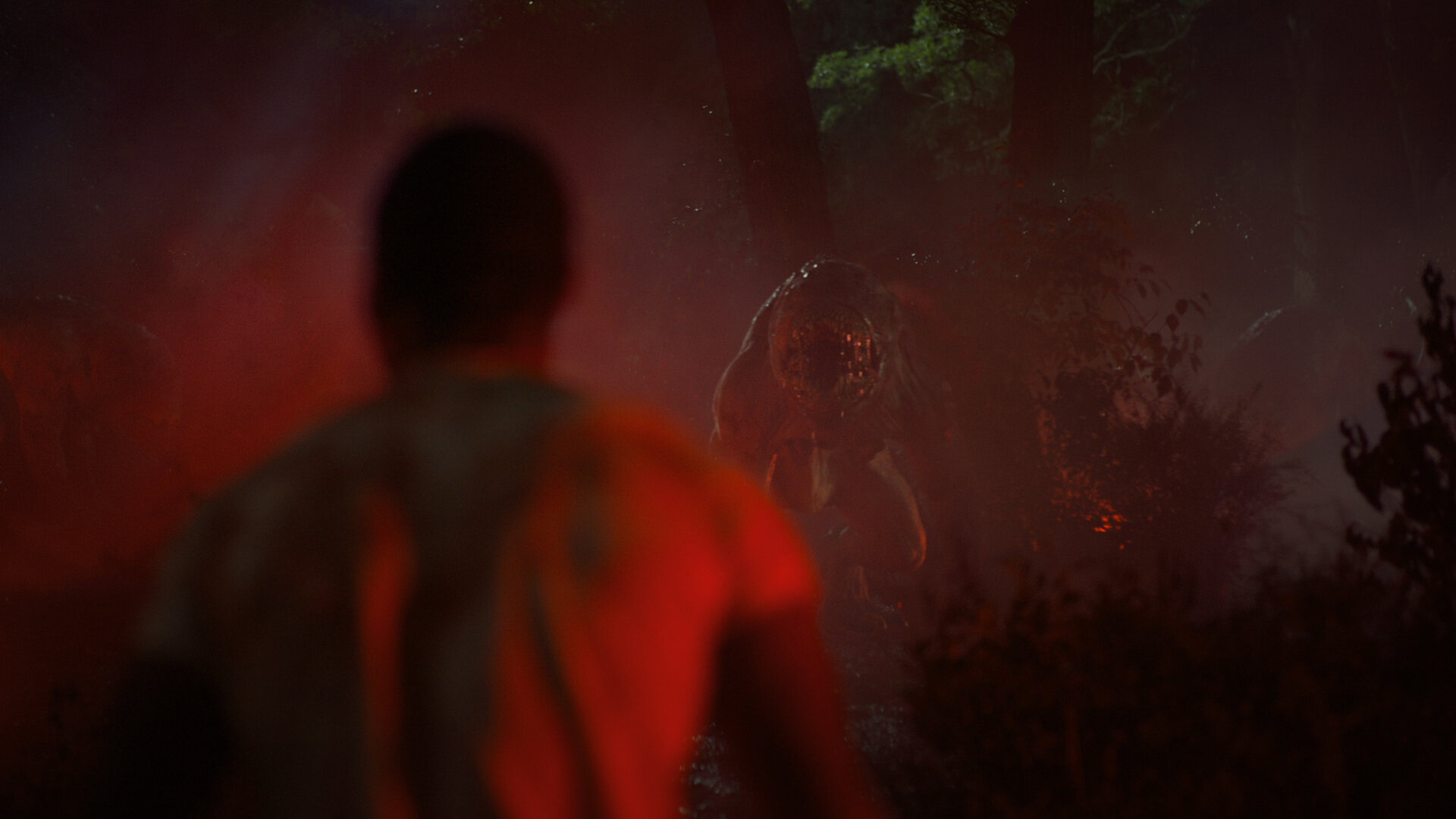
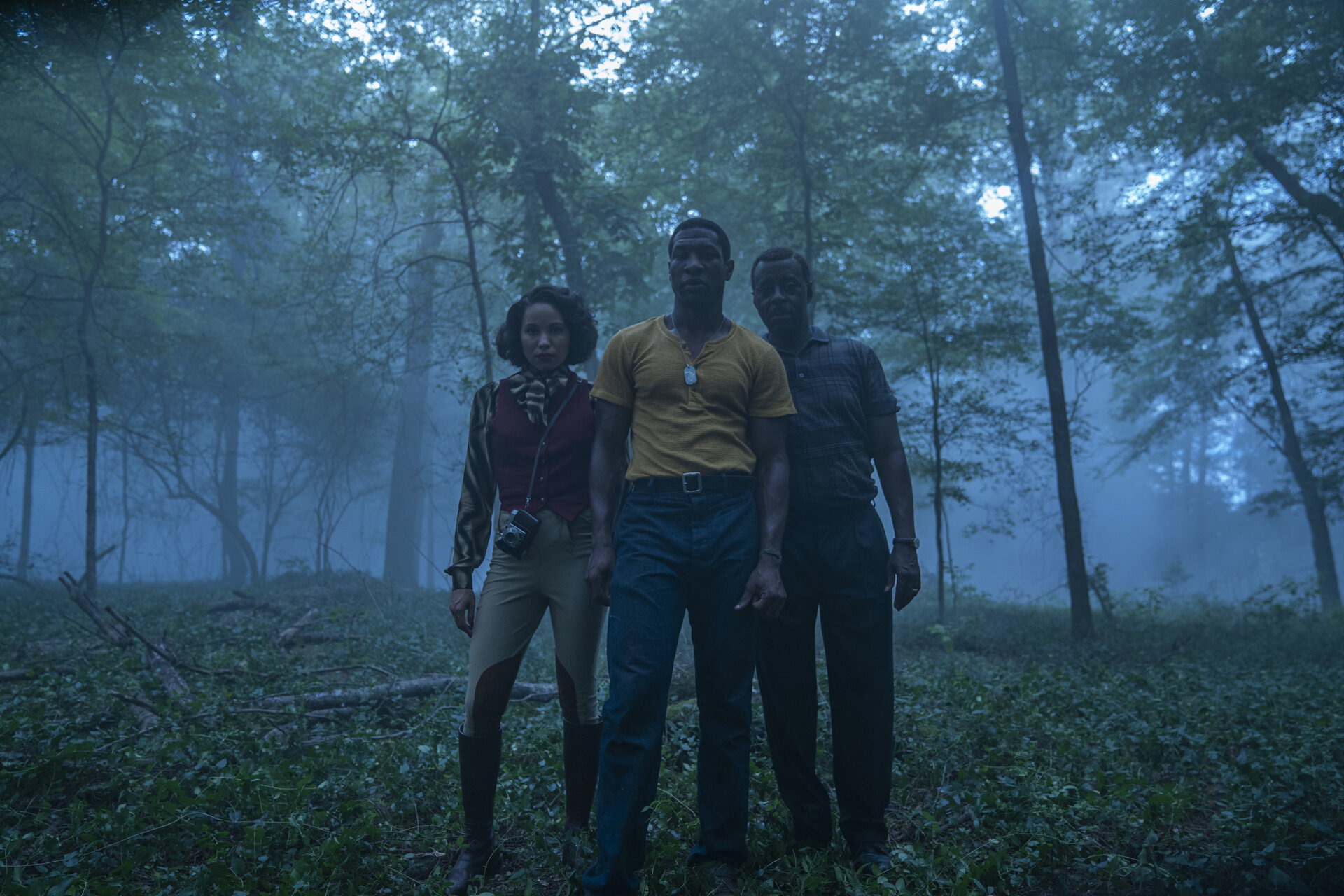
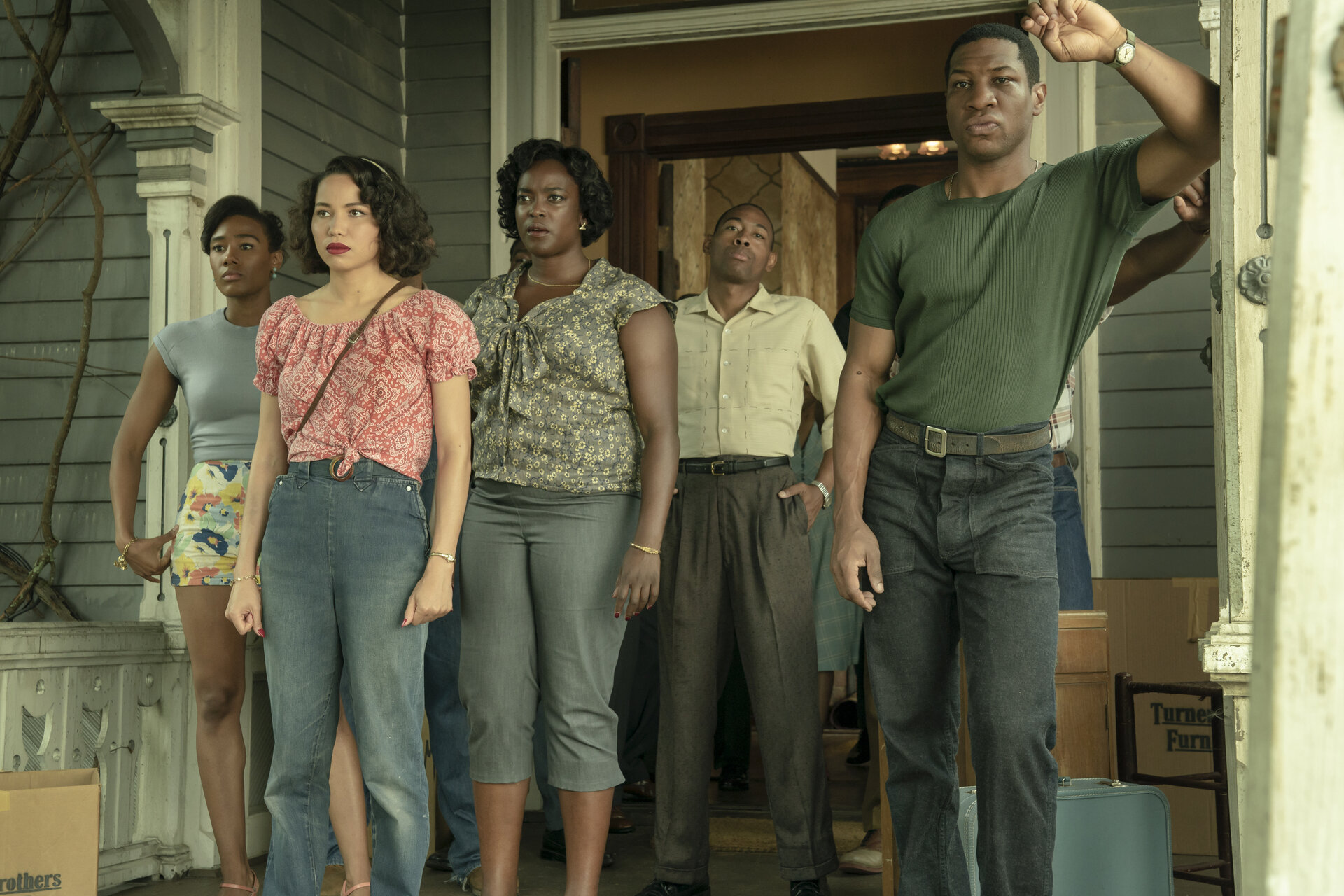
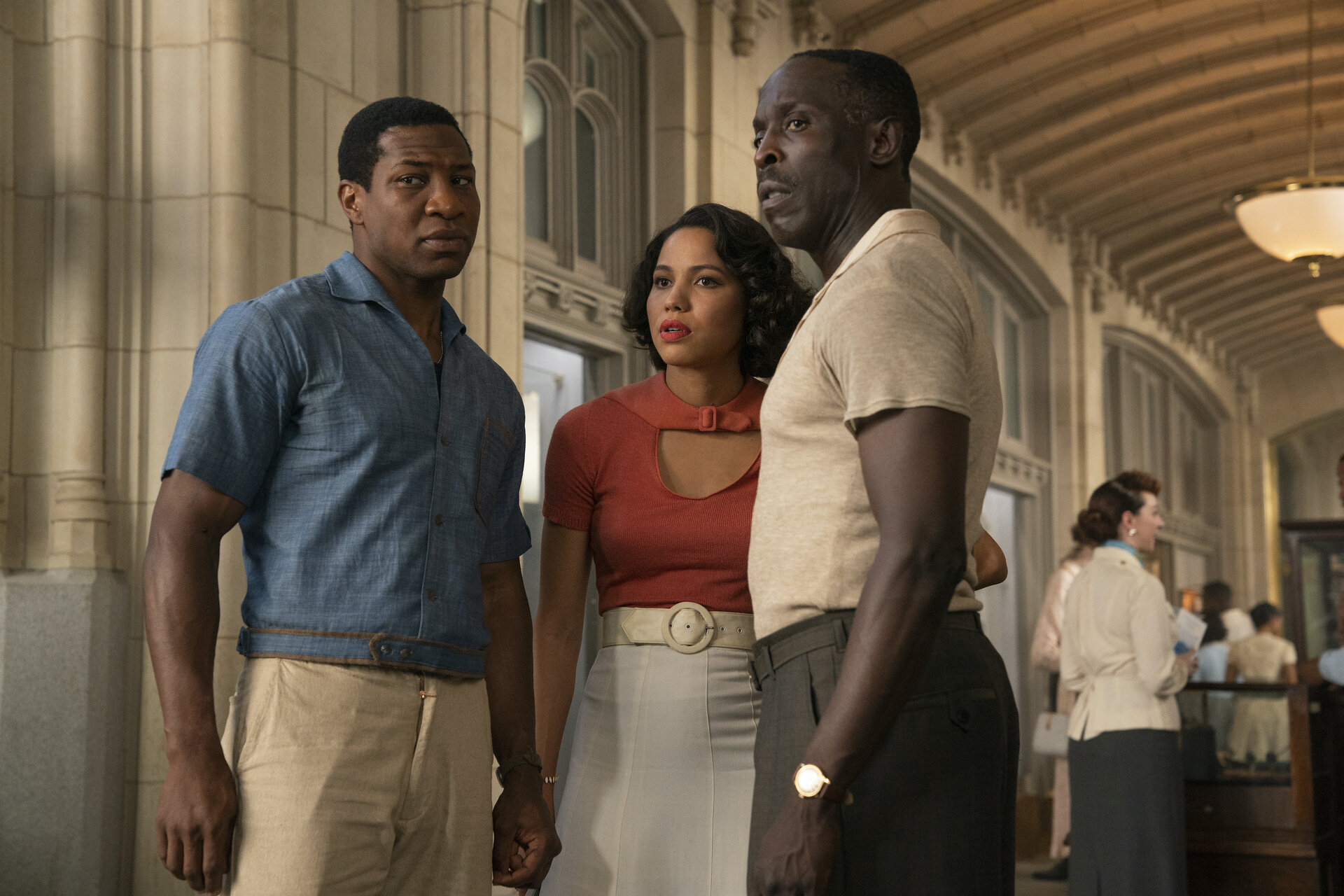
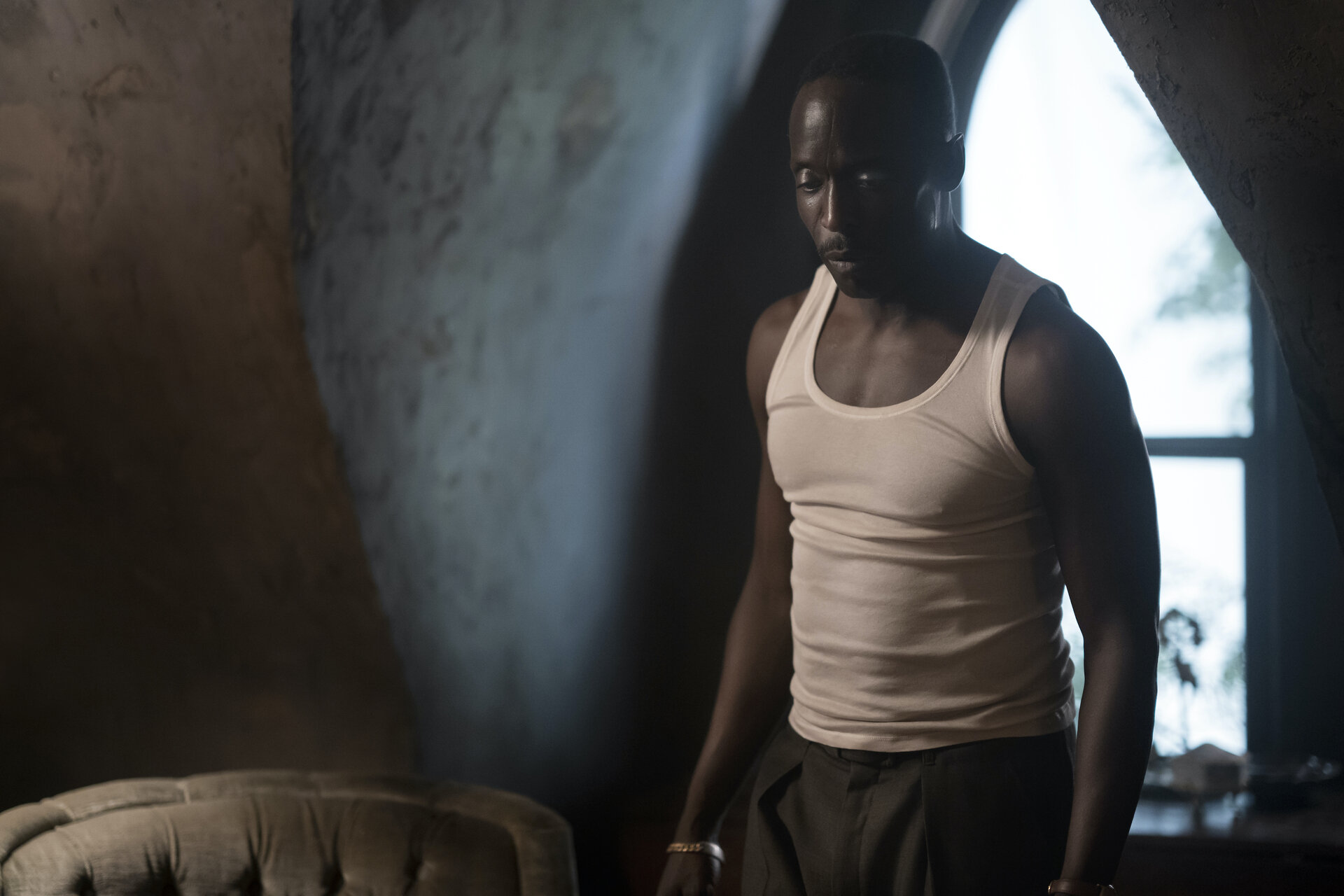
![[Fantasia 2020 Review] Survival Skills Surprises as a Socio-Political Satire](https://images.squarespace-cdn.com/content/v1/5b39608d75f9eef54c62c3f0/1597437166858-RBZC3O8RB90HN1XCTEZK/Survival+Skills+Poster.jpg)
![[News] UNDERGODS World Premieres at Fantasia 2020 and Here's the Debut Trailer!](https://images.squarespace-cdn.com/content/v1/5b39608d75f9eef54c62c3f0/1597439789023-1414I3HNQQB4SS46IX0M/UNDERGODS_Poster_final_web.jpg)
![[Kingdom Review with Joe Lipsett] The 2nd Half of S2 Ends with a Bang...and a Hint of New Beginnings?](https://images.squarespace-cdn.com/content/v1/5b39608d75f9eef54c62c3f0/1584318427031-C493IRTR12FSDB96LS81/Kingdom_S2_Unit_02_DSC8771.jpg)
![[Lovecraft Country Review with Joe Lipsett] "Holy Ghost" Works When It's Not Being Bombastic](https://images.squarespace-cdn.com/content/v1/5b39608d75f9eef54c62c3f0/1598837841238-DN2C2A21GJ32HAXOZ9JL/naomi-mack-jurnee-smollett-wunmi-mosaku-keon-mitchell-jonathan-majors.jpg)
![[Lovecraft Country Review with Joe Lipsett] "Strange Case" Has a Queer Problem](https://images.squarespace-cdn.com/content/v1/5b39608d75f9eef54c62c3f0/1600039421165-ST4871N95QOF0YI8QVUF/michael-k-williams%281%29.jpg)